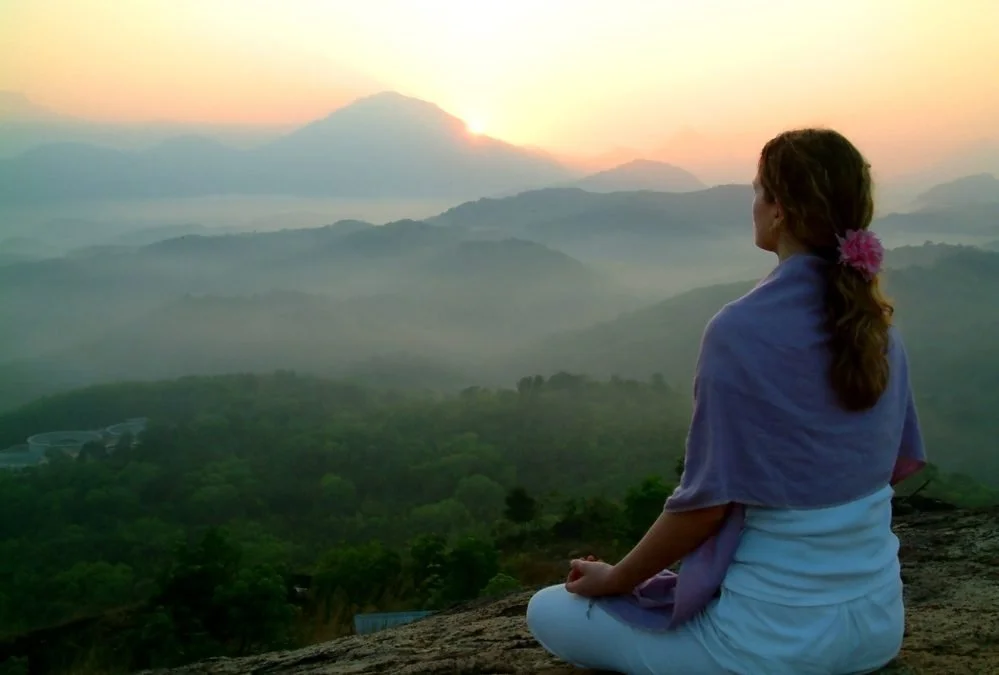What are the health benefits of meditation?
What are the health benefits of meditation?
How can meditation benefit someone’s mental health? Meditation has become a hot sexy topic in recent years. It seems like it is the new sleek thing that everyone is doing to try and combat the daily bombardment of the world we live in. There are apps, books, classes, podcasts, weekend getaways, T-shirts, you name it. It’s also touted as something that can help in a relatively quick period of time.
Well, meditation is both new and very ancient. It can be helpful immediately, and takes practice.
Meditation was, and still is, really challenging for me to come by. Naturally, I have a very busy mind and it felt/feels like torture when someone would say close your eyes and notice what is happening for you. I swear I can only “meditate” for about 3 seconds out of an entire 10 minute meditation. The rest of the time it feels like trying to get a kindergarten class to settle down. In fact sometimes it can feel like it makes things “worse.” So why in the world is everyone and their mother so into meditation?
This depends on what you define as meditation. Meditation and mindfulness can look very differently through whatever lens you have on. The lens that works best for me has been the Internal Family Systems (IFS) lens. Through this lens, when I close my eyes and start to “meditate”, I’m actually bringing some non-judgmental awareness towards what is happening, offering it whatever compassion I can find, and asking it to tell me more. This is very different from some other practices of meditation that give guidance to allow your thoughts to pass by like clouds in the sky, bring your attention back to the center every time you notice you wander, or to bring awareness to specific aspects of your experience at any given time. Don’t get me wrong, these are all terrific things to experiment with. It just didn’t work for me. It was only when I started to a) not judge or manipulate anything that was going on, along with b) offering whatever the experience was compassion, and c) ask it to tell me more and start forming a relationship with the experience was I able to start to find my way to the center, or what IFS calls the Self.
Can meditation help with mindfulness and managing emotions?
Now that you have a clear understanding of the type of meditation we’re talking about, I can show you an example of how this helps me manage my emotions. You can also learn a bit more about me or my co-founder. Let’s go with worry. In other methods worry would be seen as a thought and something to observe and let pass by. Utilizing the IFS lens that was extremely triggering for my part that does the worrying in my system.
See my worry does its thing for a reason, based on tough things that happened in my past. And while the worry doesn’t serve me really well in the present it is extremely disruptive to my system to simply push it on down the road or try and let it “pass by like a cloud”. When I tried to do that with my worry it felt like the “cloud” would circle back around about 20 seconds later and the entire time I would be trying to get this worry down the line and instead it kept spinning like a merry go round. Another analogy I use is quicksand. The harder I would try to be calm, centered and clear the further it would slip out of my hands. Anyone relate?
So when worry shows up and I bring my awareness to it, I start by seeing if I can notice(blog post about finding), non-judgmentally, where it shows up in my experience. Is it in my body (almost all my parts have a thumbprint in my body) is it a belief, or is it a visual? Then I let myself pause and stay there. This is key. I notice, I don’t wait or expect it to pass, I actually track it with curiosity. Through a gentle focus, similar to observing a piece of art that is interesting to me, I let it linger and expand or collapse in whatever it chooses, just so long it doesn’t overwhelm me. We’ll talk more about negotiating overwhelm when being mindful inside later in other blog posts.
When met with a peaceful, non-judgmental presence, that doesn’t want to minimize, box up, throw away or judge it, the worry part of me softens and shares with me its concerns. This is HUGE. This is where a large chunk of the “managing” of emotions comes from. Similar to when a kid constantly is tugging at your shirt until you turn to them and they feel seen and then they soften and stop screaming in your ear (well, most of the time that is!). So the emotions are not managed. They are attuned to, respected, listened to and offered compassion and companionship and THIS causes the calm and the softening to come forward getting the desired result.
How Sentur Can Help You Keep Up with Meditations
With Sentur, you have tools at your fingertips to help you facilitate this process. Bring about non-judgmental awareness, stay with curiosity, and offer compassion to whatever the experience is. The work of self-transformation can be hard, and every bit of help along the way counts. Sentur helps you facilitate this process in two ways.
Reminders
Reminders and check ins. With the reminders and checkins you are easily able to set time to be intentional about continuing your practice of “meditation” while being with your parts or experiences you have noticed. Take notes or utilize our tagging system to quickly and easily document your experience as you meditate. It’s like meditation meets the container store. Easily navigated, a space for everything and also very easy to find what you need when you want to come back to it.
Guided Meditations
Meditations within the “I Need Support” tool. Trying to meditate while distressed is like trying to drive in the middle of a tornado. Not that easy. When I am triggered, I’m just trying to hold onto my seat, let alone close my eyes and get quiet about what’s going on. In the step-by-step supportive tool of I need support you get just that, step-by-step instructions to guide you through the experience of noticing, focusing, and maybe if you get there, finding some compassion for whatever is happening for you at the moment. Along the way there are audio exercises to extend this practice if you choose. Exercises, like how to extend Self energy through breath, what to do if you’re feeling self-critical and more.
Is Meditating for Beginners?
Meditation, and whatever your definition is of it, can be done by anyone! Well, I should say it can be attempted by anyone. I would encourage you to be compassionate and creative in your meditation journey. So you can’t close your eyes and have a quiet mind for 2 hours at a time sitting on top of a mountain while looking like a cover of a yoga magazine?Neither can I. Neither can MOST of us, and that’s not a reason to stop. Do you know how to talk to others? Your family, the person at the gas station, your co-workers? Well let’s start there. Maybe try on the “let’s have a conversation” style of meditation I described above, and see if that offers up a bit of difference for you. If it doesn’t, get creative. What have you tried that has helped you meditate?






